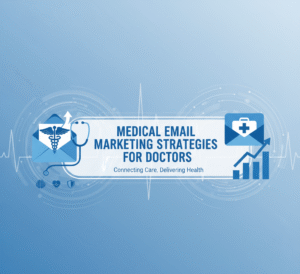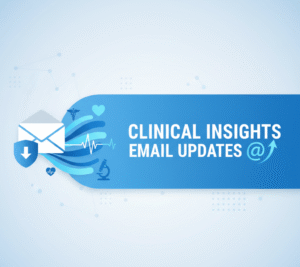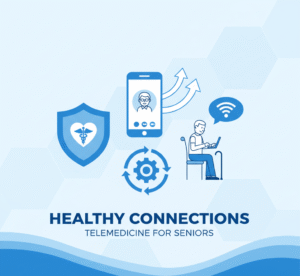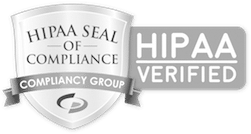“Ensure you make the right choice when choosing a Healthcare Marketing Agency with 10 critical questions to help you find a compliant and results-driven partner for your practice.”
Hiring a healthcare marketing agency is a big step. It can transform your practice, bringing in new patients and strengthening your brand. But choose wisely. Not all agencies are created equal, especially in the nuanced world of healthcare. You need a partner who understands your unique challenges and opportunities. This isn’t just about pretty ads. It’s about patient trust, ethical communication, and strict compliance.
Before signing on the dotted line, you must do your homework. This article gives you a practical checklist. It covers 10 critical questions every practice manager and doctor must ask. These questions help you vet potential partners thoroughly. They ensure you find an agency that genuinely drives results for your medical practice.
Let’s dive into these essential questions.
Question 1: What is Your Specific Experience in Healthcare Marketing?
This isn’t a general marketing question; it’s fundamental. Healthcare marketing is different. It’s not like selling shoes or software. You deal with sensitive information. Patient well-being is at stake. Regulations are complex and strict.
So, ask about their direct healthcare experience. Don’t settle for vague answers.
- How many healthcare clients have you served? Get a real number.
- What types of healthcare practices do you work with? Are they similar to yours? Do they work with hospitals, specialty clinics, dental practices, or primary care? A general agency might understand basic SEO. But do they know how to attract patients for a specific medical condition?
- Can you provide case studies specifically from healthcare clients? These should show tangible results. Look for metrics like patient acquisition, appointment bookings, or improved online reputation.
- Do your team members have backgrounds in healthcare? Some agencies employ former nurses, medical administrators, or even physicians. This insider knowledge is invaluable.
Why this matters: An agency with deep healthcare experience understands your audience. They know how to speak to patients effectively. They grasp the importance of empathy and trust in medical decisions. They also navigate the unique compliance landscape with confidence. This saves you time, money, and potential headaches.
Imagine an agency trying to market a new surgical procedure. If it lacks healthcare experience, it might use overly aggressive or inappropriate language, damaging your reputation. An experienced agency knows how to communicate complex medical information clearly and ethically. It focuses on patient education and building trust. That’s the difference.
Question 2: How Do You Ensure HIPAA Compliance in All Marketing Activities?
This question is non-negotiable. HIPAA compliance is paramount in healthcare. A single violation can lead to massive fines. It can also destroy your practice’s reputation. Your marketing agency must understand and adhere to these regulations.
Ask pointed questions:
- What are your specific protocols for HIPAA compliance? Do they have written policies? Can they share them?
- How do you handle patient testimonials or reviews? Do they obtain proper authorization? Are they careful not to disclose Protected Health Information (PHI)?
- What security measures do you have in place for data? This includes patient data you might share and data they collect through marketing efforts.
- Are your advertising platforms and tools compliant? Some ad platforms limit targeting based on health conditions; an agency must know these rules.
- Do you train your staff on HIPAA regularly? This shows a commitment to ongoing compliance.
Why this matters: Many marketing tactics can inadvertently violate HIPAA. For example, using patient photos without explicit, signed consent is a big no. Retargeting ads based on specific health-related website visits can also be problematic. An agency that doesn’t prioritize HIPAA puts your practice at severe risk.
A compliant agency will be proactive. They’ll advise you on best practices for patient consent. They’ll ensure your website forms are secure. They’ll vet all third-party tools for data privacy. This level of diligence protects your patients and your practice. Don’t compromise on HIPAA. It’s too important.
Question 3: What Specific Digital Marketing Services Do You Offer for Healthcare?
Healthcare digital marketing isn’t a one-size-fits-all solution. You need an agency that offers a comprehensive suite of services. These services should specifically address the needs of medical practices.
Ask about their core offerings:
- Search Engine Optimization (SEO):
- How do you approach medical SEO? This involves local SEO for “doctors near me.” It also includes optimizing for specific medical conditions or procedures.
- What is your strategy for Google My Business optimization? This is crucial for local patient acquisition.
- How do you handle technical SEO for healthcare websites? Page speed, mobile-friendliness, and secure connections are vital.
- Content Marketing:
- What kind of content do you create for healthcare? Blog posts, patient education guides, videos, and infographics?
- Who writes your content? Do they have medical writers? Do they understand medical terminology?
- Paid Advertising (PPC):
- What platforms do you use (Google Ads, social media ads)?
- How do you manage ad spend for healthcare clients?
- How do you ensure ad copy is ethical and compliant?
- Social Media Marketing:
- What is your strategy for engaging patients on social media?
- How do you handle online reviews and reputation management?
- Website Design and Development:
- Do you build or redesign healthcare websites? Are they patient-friendly and secure?
- Are your websites optimized for conversions (appointment requests)?
- Email Marketing:
- How do you use email to nurture patient relationships?
- How do you ensure email campaigns are HIPAA compliant?
Why this matters: You need an agency to build a cohesive strategy. They should connect all these channels. For example, your SEO efforts should drive traffic to content. That content then educates potential patients. This, in turn, can lead to appointment bookings. A truly effective agency offers a holistic, integrated approach. They don’t just provide services; they offer solutions.
Question 4: How Do You Measure Success and Report on ROI?
This is where the rubber meets the road. You’re investing in marketing. You need to see a return on that investment (ROI). An agency must be transparent about its metrics. They must clearly show you how their efforts benefit your practice.
Ask about their reporting processes:
- What key performance indicators (KPIs) do you track for healthcare clients? These should be specific. Examples include new patient appointments, website traffic, lead conversions, cost per acquisition, or online reputation scores.
- How often will we receive reports? Monthly, quarterly, weekly?
- What do your reports look like? Can they show you a sample report? Is it easy to understand? Does it go beyond vanity metrics?
- Who explains the reports to us? Will a dedicated account manager walk you through the data?
- How do you connect marketing efforts directly to patient acquisition and revenue? This is the ultimate goal. Can they track which marketing channels lead to actual booked appointments or procedures?
- What tools do you use for analytics and reporting? Google Analytics, call tracking software, CRM integration?
Why this matters: You need clarity. Vague promises won’t cut it. An agency should be able to demonstrate the value it provides. If they can’t clearly link their work to your practice’s growth, how do you know your money is well-spent? Good reporting helps you make informed decisions. It allows you to adjust strategies if something isn’t working. It also proves the agency’s effectiveness.
For example, a strong agency won’t just report website traffic. They’ll report how many visitors filled out an appointment request form. They’ll show you how many calls came from your website. They’ll track which keywords brought in the most valuable patients. This level of detail is crucial for understanding your medical marketing ROI.
Question 5: Can You Provide References and Case Studies from Healthcare Clients?
Don’t just take their word for it. Proof matters. References and case studies offer tangible evidence of an agency’s capabilities. They show what the agency has done for others in your field.
- Ask for at least two to three references from current or recent healthcare clients. Make sure these are practices similar to yours.
- When you contact references, ask specific questions:
- What results did they see?
- How was the communication with the agency?
- Did the agency understand its practice’s unique needs?
- Were they satisfied with the ROI?
- Would they hire this agency again?
- Review their case studies carefully.
- Do the case studies clearly outline the challenge, the strategy, and the results?
- Are the results measurable and impressive?
- Do they include testimonials or quotes from the client?
Why this matters: References provide an unbiased perspective. They give you confidence in the agency’s claims. Case studies illustrate their problem-solving abilities. They show their strategic thinking. They highlight their ability to deliver results. This due diligence protects your investment. It helps you avoid agencies that overpromise and underdeliver.
A good agency will be eager to share success stories. They’ll be proud of their work. They’ll have a track record of helping other healthcare providers thrive. This kind of social proof is invaluable in your decision-making process.
Question 6: What is Your Understanding of Our Specific Practice’s Goals and Target Audience?
A generic marketing plan won’t work for your unique practice. You need a partner who takes the time to understand you. They should grasp your specific goals. They need to know who your ideal patient is.
Ask them to articulate their understanding:
- Based on our conversations, what are our primary marketing goals? They should echo what you’ve told them. Goals include increasing new patient acquisition for a specific service, improving patient retention, or building brand awareness for a new clinic.
- Who is our ideal patient, in your view? They should demonstrate an understanding of demographics and psychographics. This includes age, location, income, health concerns, and preferred communication channels.
- How will your strategy be tailored to achieve our specific goals? They shouldn’t just present a standard package. They should show how they’ll customize their approach for your practice.
- What challenges do you foresee in marketing our services? This shows they’ve thought critically about your market.
Why this matters: A truly effective agency listens. They research. They don’t just push their standard services. They craft a strategy that aligns with your vision. If an agency doesn’t seem to “get” your practice, they won’t be able to market it effectively. Their messaging will miss the mark. Their campaigns will waste money.
Understanding your target audience is critical. A pediatrician’s target audience differs from a plastic surgeon’s, so marketing messages, channels, and even the tone of voice will vary greatly. A competent agency recognizes these distinctions and uses this knowledge to create highly effective, resonant campaigns.
Question 7: What Does Your Onboarding Process Look Like, and How Do You Manage Communication?
Starting a new partnership involves many moving parts. A smooth onboarding process is essential. Clear communication channels are vital for ongoing success. You need to know how you’ll work together.
Inquire about their process:
- What does your typical onboarding process involve? How do you gather information about our practice? How do you learn about our services, patient flow, and brand guidelines?
- Who will be our primary point of contact? Will it be a dedicated account manager?
- How often will we communicate? Will there be regular meetings? What is the preferred method of communication (email, phone, video calls)?
- What is the expected response time for questions or urgent matters?
- How do you involve us in the strategy and approval process? Do we review ad copy, content, or website changes?
- What tools do you use for project management and collaboration?
Why this matters: A straightforward process ensures a strong start. It minimizes misunderstandings. It sets expectations for both sides. Effective communication keeps everyone on the same page. It allows for quick adjustments if needed. You don’t want to chase your marketing agency for updates. You need a proactive partner.
A good agency will have a structured onboarding. They’ll have a clear communication plan. They’ll make it easy for you to provide input and track progress. This fosters a collaborative relationship. It ensures your marketing efforts stay aligned with your practice’s operations.
Question 8: How Do You Stay Current with Healthcare Marketing Trends and Algorithm Changes?
The digital landscape constantly shifts. What worked last year might not work today. Google algorithms change. Social media platforms evolve. New marketing technologies emerge. Your agency must be on the cutting edge.
Ask about their commitment to staying updated:
- How do your team members stay informed about new trends in digital marketing? Do they attend conferences? Do they have ongoing training?
- Specifically, how do you keep up with changes in healthcare marketing regulations and best practices? This includes search engine guidelines for medical content and evolving advertising policies.
- What new tools or strategies are you exploring for healthcare clients?
- How do you adapt your strategies when major algorithm updates occur (e.g., Google’s core updates)?
Why this matters: An outdated strategy is an ineffective strategy. If your agency isn’t learning, your practice will fall behind. You need a proactive partner who anticipates changes and adapts its methods to maintain your competitive edge.
For instance, Google often updates how it ranks medical content. It prioritizes “Expertise, Authoritativeness, and Trustworthiness” (E-A-T) even more strictly for health information. An agency unaware of these changes could hurt your search rankings. A knowledgeable agency would ensure your content is medically accurate. They would ensure it’s written by or reviewed by qualified professionals. They would ensure it clearly displays author credentials. This continuous learning is crucial for sustained success.
Question 9: What is Your Pricing Structure, and What’s Included in Your Fees?
Understanding pricing is essential. You need to know what you’re paying for and what’s not included. Get a clear breakdown to avoid hidden fees.
Ask for detailed pricing information:
- What is your standard pricing model? Is it a flat monthly retainer? Is it based on project fees? Is it performance-based?
- What specific services are included in the proposed fee? Be specific. Does it include SEO, content creation, social media management, paid ad management, and reporting?
- Are there any additional costs we should anticipate? This could include ad spend budgets, software subscriptions, stock photos, or third-party tools.
- How do you handle changes to the scope of work? What happens if we want to add or remove services later?
- Is there a minimum contract duration? What are the terms for cancellation?
Why this matters: Transparency in pricing builds trust and prevents unpleasant surprises. You need to budget effectively; a transparent fee structure helps. Ensure the agency’s fees align with your budget and expectations for ROI.
A good agency will provide a detailed proposal. It will clearly itemize services. It will explain all costs. They will be upfront about any potential additional expenses. This clarity ensures there are no ambiguities. It helps you make a well-informed financial decision.
Question 10: How Do You Define and Maintain a Strong Partnership with Your Clients?
Marketing is a journey. It’s not a one-time transaction. You need a partner committed to your long-term success. They should view themselves as an extension of your team.
Ask about their approach to client relationships:
- What is your philosophy on client relationships? Do they see themselves as vendors or partners?
- How do you handle feedback and constructive criticism from clients? Are they receptive?
- What is your commitment to ongoing support and strategic guidance? Do they just implement, or do they also advise?
- How do you ensure our marketing strategy evolves with our practice’s growth?
- What makes your agency different in terms of client partnership?
Why this matters: A strong partnership means better results. It means open communication. It means mutual respect. You want an agency that actively collaborates with you. They should offer insights. They should challenge assumptions when necessary. They should always have your best interests at heart.
A true partner understands that your success is their success. They’ll be invested in your practice’s growth. They’ll offer proactive advice. They’ll adapt strategies as your practice or the market changes. This collaborative spirit is invaluable. It transforms a service provider into a strategic ally.
InvigoMedia: Your Trusted Healthcare Marketing Partner
Navigating these 10 critical questions helps you choose wisely. It ensures you select an agency that truly understands healthcare. It ensures they are committed to your practice’s growth.
At InvigoMedia, we welcome these questions. In fact, we encourage them. Transparency is key to building lasting partnerships. Our team has deep expertise in healthcare marketing. We craft customized strategies. We deliver proven results. We prioritize ethical practices and strict HIPAA compliance.
We know the healthcare landscape inside and out, understand your unique needs, and know what it takes to attract and retain patients. Our approach is data-driven. We provide clear, actionable reports and demonstrate a measurable return on your investment.
We offer a full suite of healthcare digital marketing services, including specialized medical SEO. We also create patient-focused content, manage compliant paid advertising campaigns, provide robust social media strategies, and design high-converting medical websites.
InvigoMedia defines success by your success. We are not just a vendor. We are an extension of your team. We are your dedicated marketing partner. We stay current with industry trends and algorithm changes, ensuring your practice remains competitive. Our communication is open and consistent. Our onboarding process is smooth. Our pricing is transparent.
We invite you to ask us these questions. We are confident in our ability to provide clear, detailed answers and are ready to show you how our expertise can benefit your practice. Let’s discuss your goals and explore how InvigoMedia can help your practice thrive.
FAQs: Choosing a Healthcare Marketing Agency
Q1: What is the most crucial factor when choosing a healthcare marketing agency?
A1: Industry-specific experience and a deep understanding of HIPAA compliance are paramount. Healthcare marketing has unique regulations and ethical considerations. An agency without this specialized knowledge can put your practice at risk.
Q2: How much should I expect to pay for a healthcare marketing agency?
A2: Costs vary widely. They depend on the scope of services, the agency’s expertise, and your specific goals. You might see fees ranging from a few thousand dollars monthly for basic services to tens of thousands for comprehensive strategies. Focus on value and ROI. Don’t just pick the cheapest option. Ask for a detailed breakdown of what’s included in the fees.
Q3: How long does it take to see results from healthcare marketing?
A3: This depends on the specific strategies. SEO often takes 4-6 months, sometimes longer, to show significant results. Paid advertising can generate leads almost immediately, and content marketing builds authority over time. Expect to see some early wins within the first few months. However, significant shifts in patient volume often require 6-12 months of consistent effort. Be wary of agencies promising instant, dramatic results.
Q4: Should I choose a local agency or a national one?
A4: Both have pros and cons. A local agency might have a better grasp of your immediate market. A national agency might have broader experience and more resources. Focus on expertise and proven results, regardless of location. Modern communication tools make geographic distance less of a barrier.
Q5: What questions should I ask about medical SEO specifically?
A5: Ask about their approach to local SEO (Google My Business optimization). Inquire about keyword research for medical terms. Ask how they ensure content meets E-A-T guidelines. Also, ask about technical SEO elements. These include website speed and mobile-friendliness.
Q6: How can I verify an agency’s claims of success?
A6: Ask for specific case studies from healthcare clients. These should show measurable results, such as patient acquisition or appointment increases. Crucially, ask for client references. Contact these references directly. Ask them about their experience and the results they saw.
Q7: What if an agency doesn’t explicitly mention HIPAA compliance?
A7: This is a major red flag. If they don’t bring it up, you must. If they can’t clearly articulate their compliance protocols, walk away. HIPAA is not an option; it’s a legal requirement for healthcare providers. Your agency must respect and understand it.
Q8: How involved should I be in the marketing process?
A8: You should be actively involved, especially in the initial strategy phase. You provide valuable insights into your practice, patients, and goals. After the strategy is set, you should still review reports regularly. You should approve content and ad creatives. A good agency will value your input. They will keep you informed without overburdening you.
Q9: What if an agency wants a very long-term contract?
A9: Be cautious of overly long contracts, especially initially. Many agencies offer 6—or 12-month contracts, which allow enough time to see results. Some offer month-to-month contracts after an initial period. Understand the cancellation terms. Make sure you feel comfortable with the commitment.
Q10: Can a general marketing agency handle healthcare marketing effectively?
A10: It’s risky. While general marketing principles apply, healthcare has unique complexities. These include regulatory compliance, patient sensitivity, and specific ethical considerations. A general agency might lack the specialized knowledge to navigate these nuances. This could lead to ineffective campaigns or, worse, compliance issues. It’s usually safer to choose an agency with demonstrable healthcare experience.













